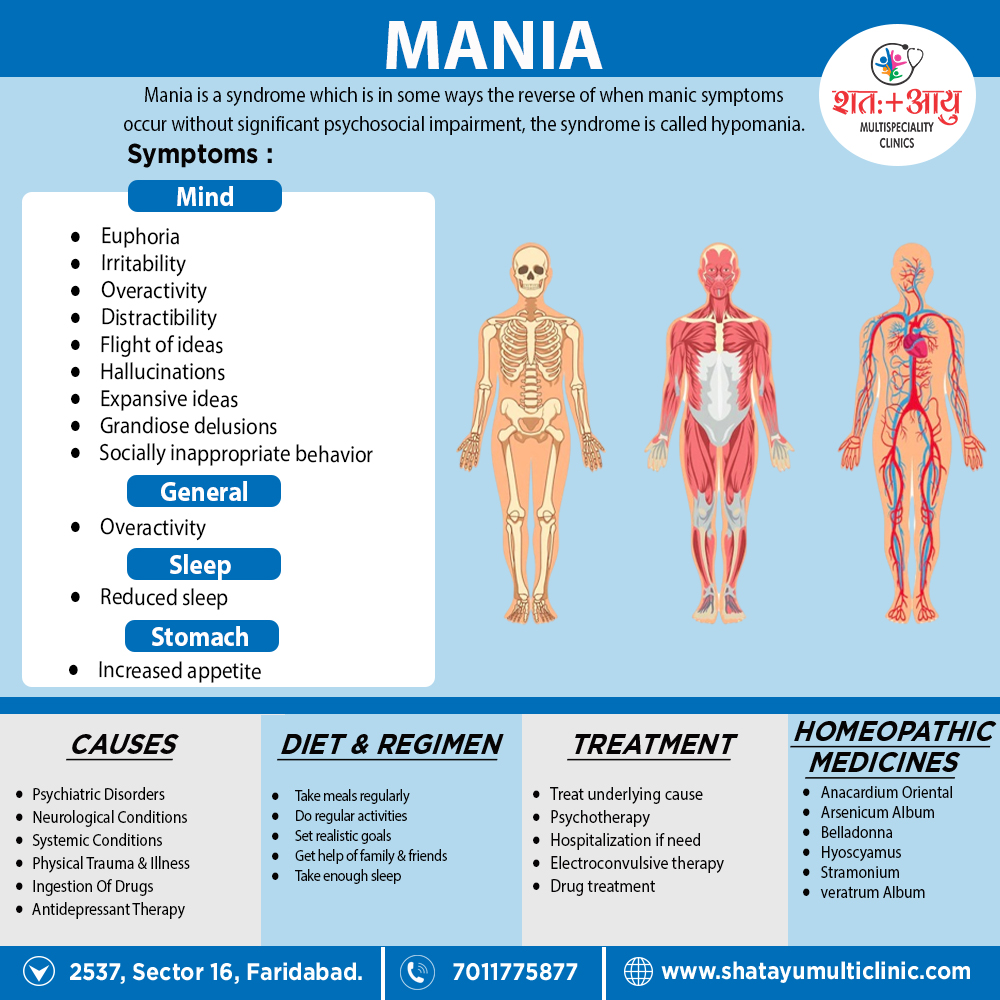General aspects of the treatment of mania:
Milder wild episodes may treat as an outpatient, but more severe disorders with associated loss of judgement will almost always need initial treatment as an inpatient. When the disorder is more severe, compulsory admission is likely to need.
Almost all patients with a wild episode will need drug treatment (Anti-psychotic drugs). The clinical status should monitor frequently.
Progress is judge not only by the mental state and general behavior, but also by the pattern of sleep and by the regaining of any weight lost during the illness. As progress continues, anti-psychotic drug treatment is reduce gradually.
It is important, however, not to discontinue the drug too soon, otherwise relapse may occur. During treatment a careful watch should be kept for the appearance of depressive symptoms because transient but profound depressive mood change and depressive ideas are common among unbalanced patients.
In either case, suicidal ideas may appear. A sustained change to a depressive syndrome may require treatment, including with antidepressant drugs which should use cautiously to avoid precipitation of a unbalanced relapse.
Specific treatments for mania:
Anti-psychotic drugs i.e.:
Anti-psychotic drugs have an established place in the treatment of mania. An atypical anti-psychotic, such as olanzapine, quetiapine, or risperidone, is therefore usually the first-choice treatment.
Antipsychotics should generally not be used to control behavior because the doses required for this effect are high and adverse effects are therefore more likely.
A benzodiazepine such as lorazepam or diazepam should be used instead.
Lithium i.e.:
Lithium is effective in mania, but less so than anti-psychotic drugs, and it can be difficult to use safely in severely disturbed patients.
It is therefore used mainly in patients with milder unbalanced episodes, especially when it is intended to continue the treatment in the long term to prevent relapse.
It is also used in combination with anti-psychotics—caution is required when used in combination with haloperidol because extra-pyramidal effects occur commonly.
Anti-epileptic drugs i.e.:
Valproate is effective in acute mania. It is slightly less effective than anti-psychotics, but causes fewer adverse effects.
Thus, it may be particularly useful in patients who are not currently taking a long-term mood stabilizer, and who have a mild wild illness without psychotic features.
An advantage of valproate over lithium in the acute phase is that a high loading dose can be given, which leads to a more rapid response and shorter hospital stays.
Carbamazepine is another anti-epileptic drug that can be used in mania.
Electroconvulsive therapy i.e.:
Clinical experience indicates that ECT has a powerful therapeutic effect in mania.
Nevertheless, ECT is not a first-line treatment; its use is mainly in the uncommon cases when anti-psychotic drugs are ineffective and the patient is so seriously disturbed that to spend time trying further medication or awaiting natural recovery is not justified.

